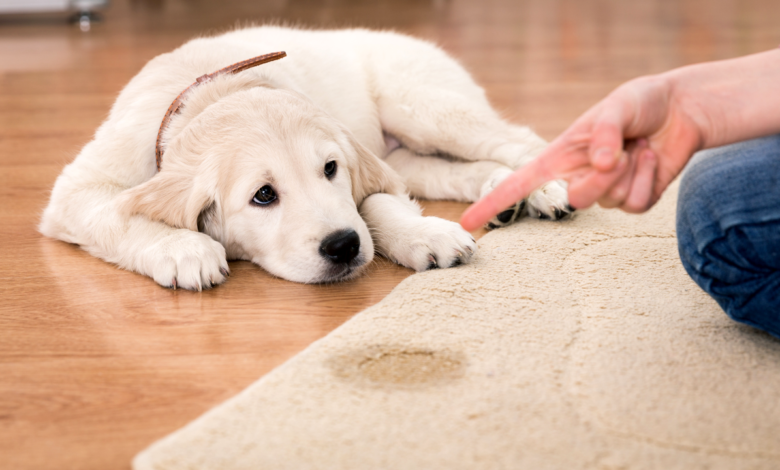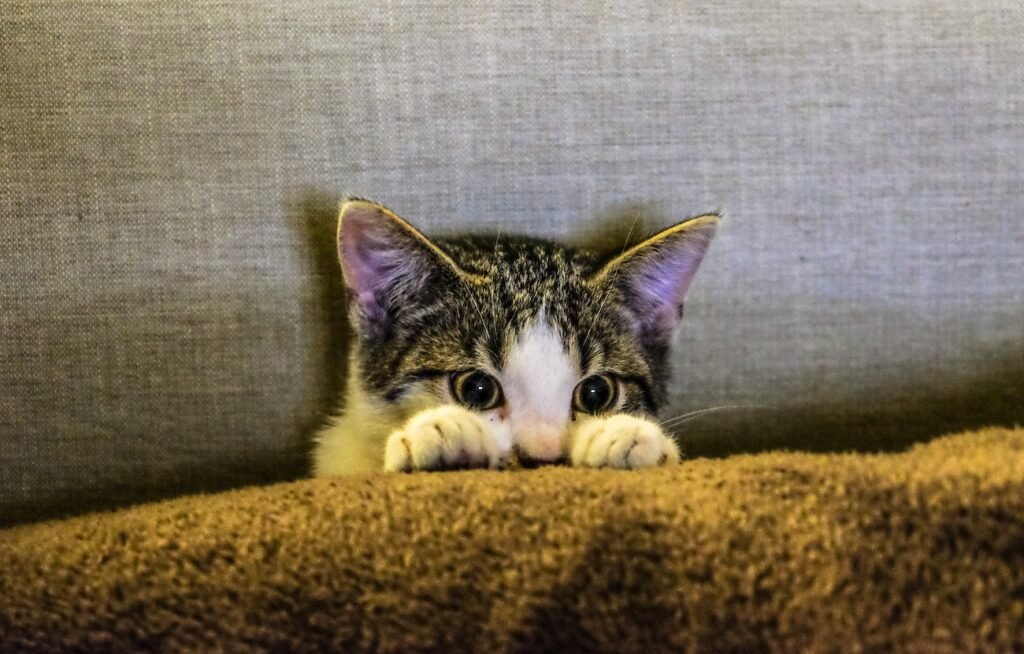
10 Ways of Cleaning Pet Urine From Carpets
Pet ownership is a rewarding experience, but dealing with pet urine on carpets can be a challenging aspect of it. Those unexpected accidents can leave unsightly stains and unpleasant odors that, if not properly addressed, may pose health risks. In this guide, we’ll explore 10 effective ways to clean pet urine from carpets, ensuring a clean and odor-free living space for both you and your furry friend.
Read More: Pet Allergies: Identifying Triggers and Managing Symptoms
Cleaning Pet Urine From Carpets

Importance of addressing pet urine on carpets
Addressing pet urine on carpets is more than just about aesthetics. Beyond the visible stains, untreated urine can seep deep into carpet fibers, creating a breeding ground for bacteria and leading to persistent odors.
Common challenges faced by pet owners
Pet owners often find themselves facing challenges when it comes to effectively cleaning pet urine from carpets. This guide aims to provide solutions to these challenges, offering practical and actionable advice.
Understanding Pet Urine
Composition and odor
Pet urine consists of ammonia and urobilin, contributing to its distinct and sometimes overpowering odor. Understanding its composition is crucial for choosing effective cleaning methods.
Health risks associated with untreated pet urine
Beyond the visible effects, untreated pet urine can pose health risks, especially for individuals with respiratory issues or allergies. Proper cleaning is vital to creating a safe living environment.
Immediate Action Steps
Blotting and absorbing excess urine
The first step in addressing pet urine stains is immediate action. Blot and absorb as much liquid as possible using paper towels or a clean cloth. This prevents the urine from penetrating deeper into the carpet.
Avoiding the use of harsh chemicals
While it might be tempting to use strong chemicals for quick results, these can be harmful to pets and may damage carpet fibers. Opt for gentler alternatives to ensure effective cleaning without compromising safety.
Homemade Cleaning Solutions
Vinegar and water mixture
A simple yet effective homemade solution involves combining white vinegar and water. This natural concoction helps break down stains and neutralize odors, providing a pet-safe cleaning option.
Baking soda for odor removal
Baking soda is renowned for its odor-absorbing properties. Sprinkle it over the affected area after cleaning to eliminate lingering smells effectively.
Enzymatic cleaners
Enzymatic cleaners are specifically designed to break down the components of pet urine. These cleaners are pet-safe and highly effective in removing stains and odors.
Commercial Cleaning Products
Overview of pet-friendly carpet cleaners
Numerous commercial products are formulated to address pet stains and odors. Choosing those labeled as pet-friendly ensures a safe cleaning process for your furry companions.
Choosing the right product for specific stains
Different stains may require different cleaning solutions. Understanding the nature of the stain helps in selecting the most suitable commercial cleaner for optimal results.
Carpet Cleaning Machines
Benefits of carpet cleaning machines
Investing in a carpet cleaning machine provides a thorough and efficient cleaning process. These machines extract deeply embedded pet urine, leaving carpets fresh and revitalized.
Recommendations for effective machines
Selecting the right carpet cleaning machine involves considering factors such as power, portability, and ease of use. Recommendations from pet owners and experts can guide you toward the most effective options.
Professional Cleaning Services

When to consider professional assistance
In cases of persistent stains or extensive pet urine damage, seeking professional cleaning services becomes essential. Professionals have the expertise and equipment to tackle even the toughest cleaning challenges.
Hiring reputable carpet cleaning services
Choosing a reputable carpet cleaning service ensures a reliable and effective solution. Reading reviews and testimonials can help in making an informed decision.
Preventive Measures
Training pets to avoid accidents
Prevention is key, and training your pets to use designated areas can significantly reduce the likelihood of accidents on carpets.
Using protective covers on carpets
Protective covers act as a barrier between pet accidents and the carpet, simplifying the cleaning process and preserving the carpet’s integrity.
Dealing with Lingering Odors
Natural odor eliminators
Natural odor eliminators, such as activated charcoal or citrus-based sprays, can be effective in neutralizing persistent odors without introducing harmful chemicals.
Tips for preventing recurring odors
Identifying and addressing the root cause of recurring odors, such as hidden stains or inadequate cleaning, is crucial for preventing future issues.
Tips for Specific Flooring Materials
Carpets with various materials
Different carpet materials may require tailored cleaning approaches. Understanding the specifics of your carpet helps in selecting the most suitable cleaning method.
Tailoring cleaning methods to specific carpets
From synthetic to natural fibers, each carpet material has unique characteristics. Adapting your cleaning method to match these characteristics ensures optimal results.
Common Mistakes to Avoid
Using harsh chemicals
Harsh chemicals can damage carpet fibers and pose health risks to pets. Avoiding their use promotes effective cleaning without compromising safety.
Ignoring immediate action steps
Delaying the cleaning process allows urine to penetrate deeper, making stains more challenging to remove. Prompt action is crucial for successful cleaning.
Benefits of Regular Cleaning
Prolonging carpet lifespan
Regular cleaning not only removes stains but also extends the lifespan of your carpets, preserving their appearance and structural integrity.
Maintaining a clean and healthy living environment
A clean carpet contributes to a healthy home environment, reducing allergens and promoting overall well-being for both pets and humans.
Eco-Friendly Cleaning Options
Sustainable and pet-safe cleaning alternatives
Choosing eco-friendly cleaning options minimizes environmental impact while ensuring the safety of your pets during the cleaning process.
Reducing the environmental impact of cleaning
Simple choices, such as using biodegradable cleaners and minimizing water usage, contribute to eco-friendly carpet cleaning practices.
Testimonials and Success Stories

Sharing experiences of pet owners
Real-life experiences and success stories from pet owners who have successfully tackled pet urine stains provide valuable insights and inspiration.
Highlighting successful cleaning strategies
Detailing specific strategies that worked for others helps readers experiment with various cleaning methods to find the most effective solution for their unique situations.
Conclusion
Recap of key cleaning methods
Summarizing the key cleaning methods reinforces the importance of a multifaceted approach to effectively address pet urine stains on carpets.
Encouraging proactive pet care
Promoting proactive pet care, including training and preventive measures, ensures a harmonious living space for both pets and their owners.
Read More: Understanding Common Pet Illnesses: Recognizing Symptoms and Seeking Treatment
FAQs
- Can I use regular carpet cleaners for pet urine stains? Regular carpet cleaners may not be as effective on pet urine stains. It’s recommended to use products specifically designed for pet stains and odors.
- How often should I clean my carpets to prevent pet urine issues? Regular cleaning every 3-6 months, or more frequently in high-traffic pet areas, can help prevent and address pet urine issues.
- Are enzymatic cleaners safe for pets? Yes, enzymatic cleaners are generally safe for pets. However, it’s crucial to follow the product instructions and keep pets away during the cleaning process.
- Can old pet urine stains be completely removed? While old stains may be more challenging to remove, a combination of proper cleaning methods and products can significantly improve the situation.
- What should I do if the odor persists after cleaning? Lingering odors may indicate deeper issues. Reevaluate the cleaning process, consider professional help, and ensure pets are not repeatedly soiling the same spot.







